Every year, the Division for Global Communication and Social Change selects a number of papers and pre-formed panels relevant to it mission, to be included in the International Association Annual (ICA) Annual Conference. The selection of papers is competitive. Any scholars interested in presenting their work on global communication and social change can submit a paper through the official submission site of ICA. The deadline for submissions is usually at the beginning of November.
The Global Communication and Social Change Division promotes research and critical analysis of the production, distribution, content and reception of communications media and digital media at the global, transnational, transcultural, international and regional levels. Within this purview it encompasses research across a wide variety of theoretical and methodological approaches, concerning issues of media/ mediated communication in local, national, regional and global cultural, economic, political and social contexts. This can include studies of strategic mediated communication for development, social justice and social change, as well as critiques of development communication strategies.
In line with the ICA 2026 theme, “Communication and Inequality in Context,” we especially welcome submissions that interrogate how global communication processes reproduce or resist inequality in different political, cultural, and technological contexts.
Please note that it is not sufficient for submissions to simply proclaim a “global” status by addressing communications in non-U.S contexts. Where papers and panels are based on empirical case studies, they must relate relevant empirical cases to the broader field of global communication, which also includes the field of development communication. We encourage authors to employ a comparative or multi-nation perspective in accordance with the global nature of our division.
Paper awards
Each year, the GCSC Division recognises outstanding scholarship through three paper awards:
- Best Faculty Paper Award
- Best Student Paper Award
- Best African Journalism Studies Paper Award
Only full paper submissions are eligible for these awards. More details about the Division’s award can be found here.
To be considered for the student paper award, all authors must be students at the time of submission and must indicate this status during the submission process.
Submissions
For the 2026 conference in Cape Town (South Africa), the GCSC Division is seeking four types of submissions:
1) Scholarly Papers
Scholarly papers should be original and innovative, including the main area of inquiry relating to the 2026 conference theme and/or the GCSC Division research interests (see the list of keywords below). Submitted papers can be either theoretical in focus or employ empirical methods (quantitative, qualitative, mixed, computational, etc.) at an advanced level. ICA requires that papers be no longer than 7,500 words maximum, not including references, tables, figures, charts, etc. Work already published or accepted for publication or work already submitted to or presented at another conference, may not be submitted to ICA.
Paper authors are expected to conceal their identity from reviewers (e.g., no names on title page, no names in file properties, and appropriate concealment in the text). Submissions that are not appropriately anonymized for blind review may be rejected. If citing your own work, be sure to use the third person to keep the paper anonymous, or, where necessary, replace paper author names with “AUTHOR” in the text and in the bibliography.
2) Extended Abstracts
For the 2026 conference, the GCSC Division also accepts extended abstracts addressing works in progress, including the main area of inquiry relating to the 2026 conference theme and/or the GCSC Division research interests (see the list of keywords below). Extended abstracts should be between 1,000 and 1,500 words in length, not including references, tables, figures, charts, etc. Extended abstracts should describe a study that, in terms of its timing and progression, would benefit from feedback at the conference. Extended abstracts should clearly set forth the study purpose, conceptual framework, and research questions, as well as provide sufficient methodological detail by which to evaluate the study’s design and its likely findings. If applicable, abstracts may also include preliminary findings.
Extended abstract submissions are not eligible for top paper awards.
3) Research Escalator Submissions
Research Escalator sessions are designed to support scholars developing work-in-progress related to global communication and social change. We especially encourage submissions from graduate students, early-career researchers, and those less experienced with academic publishing. Submitters should provide an extended abstract of approximately 1,000 words (excluding references, tables, and figures), clearly outlining the research question, conceptual or theoretical framing, methodology, and any preliminary findings or directions. Submissions must include “Research Escalator:” in the title and on the title page.
Accepted participants will be paired with a senior mentor and are expected to share a more developed version of their paper at least six weeks before the conference. During the session, participants will receive individualised feedback in one-on-one mentorship conversations, followed by a brief presentation summarising key insights and next steps.
Research escalator papers are not eligible for top paper awards.
4) Panels
Panel proposals should include information on the overall rationale of the session, including the main area of inquiry connected to GCSC Division interests and the 2026 conference theme. Submitters should also provide the names and affiliations of each participant. The intent of panel sessions is to allow participants to present completed papers in a specific area of research. Panel proposals require a 400-word rationale for the panel, a 150-word abstract from each panel participant and a 75-word description for the conference program.
Panel proposals should: include contributions from at least two different countries, feature gender balance, and include not more than one contributor from a single faculty, department or school.
Please be aware that we receive many more panel proposals that we can accept; proposals which neglect any of these guidelines will not be sent for review.
Additional Information for Submitters
Please note that in submitting to the Global Communication and Social Change Division, you are agreeing to review papers for the division. When asked to register on ScholarOne, please scroll down to the Global Communication and Social Change Division and indicate it as your first choice to review, and please use the list of keywords to provide specific interest areas to help us direct the right papers to you.
Divisions and interest groups are not permitted to accept remote/hybrid/virtual submissions. Those who need to present remotely should submit to the theme or the interdivisional sections (both of which will have hybrid capabilities) instead of to a division/IG. In the submission system’s drop-down list, the interdivisional section and the conference theme are separate options from the names of the divisions and interest groups. Please note that asking the Chair to allow you to “DIY” Zoom-in to present in an in-person DIG session is not permitted by ICA.
Exceptions will be made for disability accommodations. If you plan to submit a paper or panel to a Division/IG and you or someone on your panel will require accommodation due to a disability (whether that accommodation is remote presentation access or some other intervention), please submit to the division/IG and note the accommodation needed in the comments box so that the planner knows in advance and can flag this requirement for conference organizers. (These comments will not be seen by reviewers.) Please note that ICA only has two rooms for hybridity so there is still a limit to the number of exceptions that can be made until we run out of space.
The notes sections should be used to inform us of any scheduling/religious conflicts or accessibility needs so that if accepted, your paper can be scheduled appropriately. Those reviewing your paper will not see the comments you enter in the notes section during the review process; your notes will only be seen by the planner and ICA headquarters, after the review process has concluded.
Submit now here

